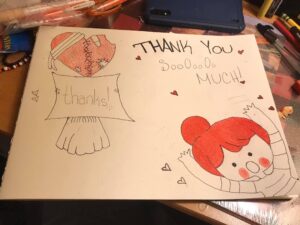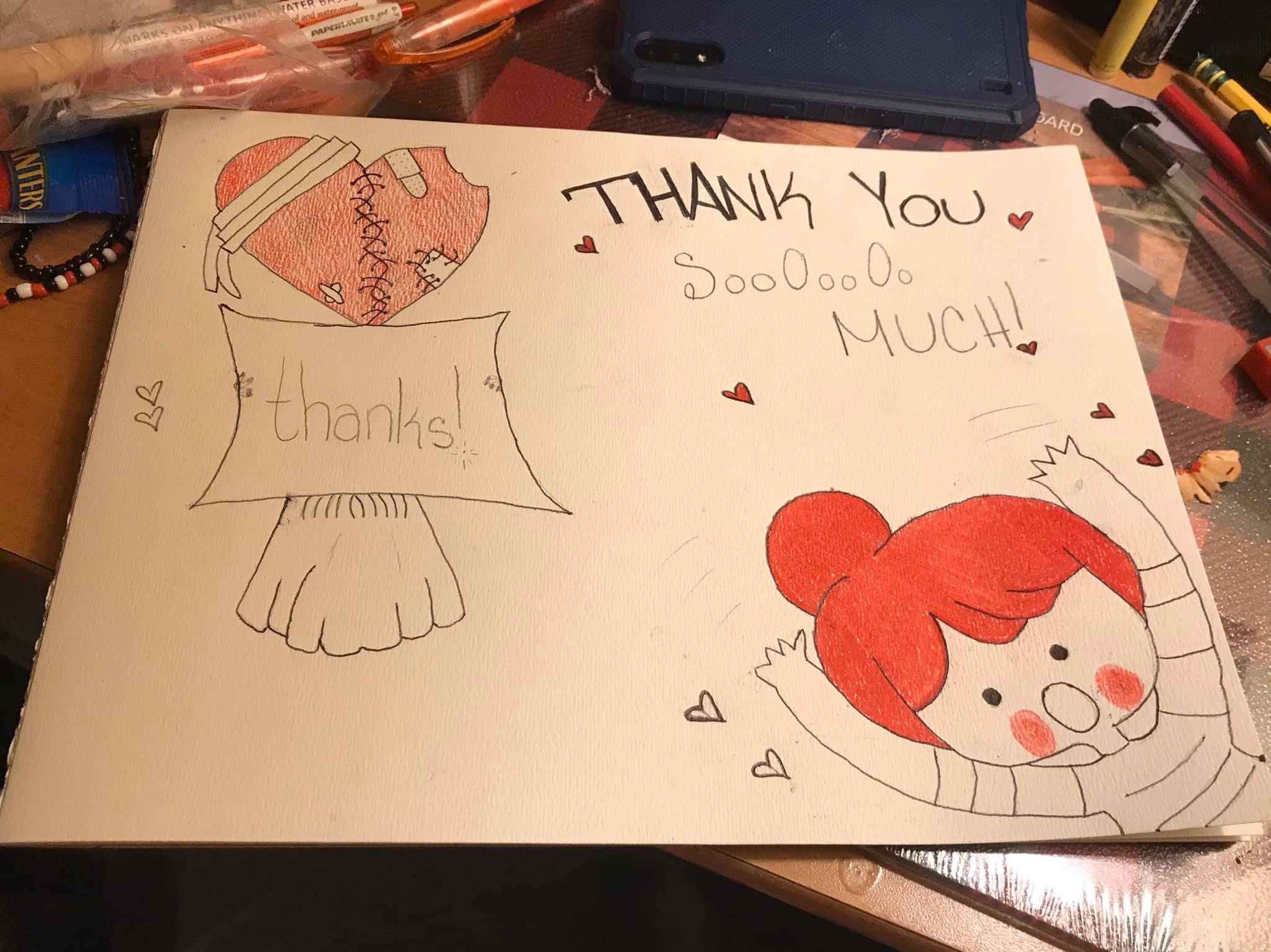It was one of the coldest days of the year, and an inch of frozen slush clung to the Manhattan sidewalks when Wendy Lazaro checked herself and her two small children into a Midtown shelter. With no possessions except the clothes they wore, Lazaro found herself alone with her toddler and baby, while a snowstorm and the pandemic ravaged New York City.

“The girls were cold,” she recalled, her voice catching at the memory. “I just didn’t know what else to do.”
Taking the advice of a stranger, Lazaro shared her story to a local Facebook group called Buy Nothing. Within a few hours her post had more than 150 comments from residents across the neighborhood reaching out to offer items they no longer needed.
The number of donations quickly became so overwhelming that one member decided to make a Google spreadsheet. When the snow prohibited travel, another offered to drive to people’s apartments for pick up and delivery, filling the small hatchback to capacity.
“It’s just so emotional because I didn’t know anyone would help me, and they came through and they brought us blankets and socks and clothes and anything we needed,” Lazaro said. “I was just so thankful – I started believing in God again.”
The group Lazaro found is one of hundreds of Buy Nothing groups hosted on Facebook. Founded by Liesl Clark and Rebecca Rockefeller in Washington’s Bainbridge Island in 2013, the small local effort to reduce waste and develop community has grown to a global phenomenon with over 3 million participants in 44 countries. The basic tenets of the movement are to “Buy Nothing. Give freely. Share creatively,” and members participate in local “gift economies,” which allow neighbors to meet and develop friendships and support networks.
Buy Nothing Midtown West has grown from 80 members in August 2020 to over 2,000 today. Founded by Anca Burducea after the Upper West Side Buy Nothing group grew too large, becoming admin seemed like a no-brainer for Burducea. “I said, well I enjoy checking the group every day… and I thought I can do that as an admin as well.”
Like Burducea, many members find themselves hooked on the group, as their desire to declutter and reduce waste gives way to a deep appreciation for the sense of community the group generates. This need for community became particularly acute against the backdrop of the pandemic.
According to its Website, the Buy Nothing Project has nearly doubled its global membership since lockdowns started. Many said they remain committed to the group because of the mental health benefits of being outside, walking around the community and receiving or gifting items.
“In New York City, it’s hard to meet your neighbors, and a lot of times people are hesitant,” member Maggie Latona said. “The Buy Nothing page gives you the opportunity to do that.”
The Buy Nothing Midtown West group has created a community that members can rely on. When Burducea needed help carrying a large delivery up to her fourth-floor walk-up while eight months pregnant, she put a blast out to the group, and was helped by three neighbors shortly thereafter.
It is this spirit of helping your neighbors that brought so many people to help Lazaro last winter. Alexandra Geiger saw Lazaro’s post, and realized that as the weather prevented neighbors from getting Lazaro the items she needed, her car could be an invaluable asset. Geiger didn’t hesitate, later joking, “I used to work as a prop shopper on Broadway, so, driving around with a car filled with other people’s stuff is actually a resumé skill of mine!”
Although Geiger didn’t have any items to donate herself, she said that didn’t matter. “If you want to participate in a community, you do what you can do,” Geiger said.
“I’ve been driving in snow since I was 20,” Geiger added. “This was something I could do. So I did.”
Members of the Buy Nothing Midtown West group, many of them recent transplants to the neighborhood, have credited the group with making them feel like they live in a small town. In the middle of a big city, they feel comfortable asking their neighbors for a cup of sugar, or even a couch. And for those who’ve lived here for decades, the group has helped them rediscover their neighborhood.
“I don’t feel alone anymore like I did when I first came here,” said Lazaro, who is originally from Connecticut. She is still amazed at how a group of people came together so quickly to help a stranger in a moment of need. “There are still great people in this world, and I think everyone should know that.”








